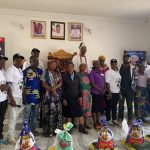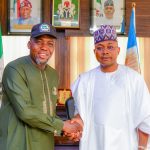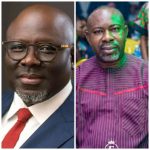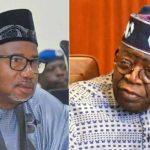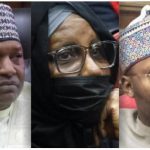Rethinking African Education: From Colonial Legacies to Local Realities
By Dr. Aiyeku Olufemi Samuel
Global Human Capital & Energy Management
Introduction: The Crisis of Content and Context
What kind of engineers, doctors, architects, scientists, and policy experts are African institutions producing? Are they equipped for problemsolving within our own environments or merely trained to fit into foreign systems that do not reflect our realities? These are not rhetorical questions. They define the very pulse of Africa’s future.
Across the continent, there is growing concern about the misalignment between educational outputs and developmental needs. Our schools produce graduates fluent in theoretical knowledge but often estranged from local contexts and indigenous innovation. We have, for too long, educated ourselves out of our identity.
“He who controls the curriculum controls the future.” — Anonymous
Logic, and the Lost Horse: A Call for Structured Cultural Renaissance in Education
One of the greatest dilemmas in our educational evolution as Nigerians lies in our chronic tendency to “put the carrot behind the horse”—a powerful metaphor illustrating our backwards approach to progress. We consistently incentivize outcomes without preparing the path or building the structure to achieve them. The current noise around local language inclusion in our education system is a welcome debate, but one fraught with deeper structural contradictions.
It is true that the Hausa, Igbo, and Yoruba languages, once robust vessels of cultural and intellectual heritage, are fast losing their grip in the race to global relevance. Yet ironically, we now see physics textbooks written in minority languages like Nupe and Gwari without a unified framework, policy direction, or technological ecosystem to support such ventures.
The passion to indigenize is commendable—but the path is chaotic.
We must ask ourselves:
Do we have linguistic standardization tools to unify dialects into teachable, codified languages?
Do we have research software, AI models, academic databases, or digital learning tools programmed in these languages?
Where are the teacher training colleges and digital platforms preparing instructors to teach biology or economics in Gwari or Nupe?
Have we developed a national curriculum for STEM subjects in native languages with tested efficacy?
Here lies the risk: in our attempt to localize without structure, we might create an academic Tower of Babel, where fragmentation replaces fluency and confusion, replaces comprehension.
To move forward, we must:
• Develop a national indigenous language policy that identifies priority languages for education, particularly Hausa, Igbo, and Yoruba, with crossethnic relevance.
• Invest in linguistic technology infrastructure—developing translation engines, AIbased language processors, and education apps in select native tongues.
• Standardize curriculum content in native languages in partnership with linguists, educationists, and historians to ensure accuracy and coherence.
• Encourage bilingual education models, starting from early childhood, where students learn both in a native language and English, gradually easing into technical concepts.
• Train a new generation of educators, fluent in both pedagogical techniques and indigenous expressions, through dedicated teacher colleges and fellowship programs.
• Establish a National Indigenous Knowledge Development Board to drive policy, funding, innovation, and publication in local content.
“Language is not just a tool of communication—it is the soul of culture, the archive of wisdom, and the gateway to innovation.” – Anonymous
The passion for change is no longer enough. What we need now is structured action—anchored in vision, policy, and technology. Let’s stop putting the carrot behind the horse. Let us put knowledge before the learner, strategy before slogans, and policy before politics
• Challenges: The Legacy We Never Rewrote
Colonial Education Framework: The structure and content of African education systems were inherited from colonial powers. These systems were not designed to promote African growth but to serve colonial administration.
Language of Instruction: English, French, and Portuguese dominate African classrooms, while indigenous languages are treated as informal. Unlike China or Germany, where education thrives in native tongues, Africa struggles with linguistic alienation.
Imported Curriculum: Science, medicine, and engineering syllabi often reflect Western standards and environments, creating professionals who may be unable to adapt solutions to rural Africa’s specific needs.
Historical Amnesia: African history has been sidelined in favour of Western narratives. Many African students know more about the French Revolution than the Songhai or Benin Empires.
Lack of Local Content Policies: Governments and academic institutions fail to promote or enforce policies that encourage research, development, and innovation based on indigenous knowledge and local materials.
“When the roots are deep, there is no reason to fear the wind.” — African Proverb
• Consequences: What Are We Becoming?
Technicians Without Territory: We are creating professionals who can operate imported machines but can not innovate with local resources.
Doctors Without Local Diagnosis: Many Africantrained doctors struggle to treat diseases like malaria with holistic and affordable approaches, relying instead on foreign diagnostics.
Engineers Without Context: Our engineers can calculate stress on steel for skyscrapers but can’t design affordable houses with bamboo or laterite soil—materials abundant in rural Africa.
The WhiteCollar Mirage: Education has been reduced to a paper chase, not a problemsolving mission. Degrees are valued more than skills.
“We are not poor because we lack resources; we are poor because we lack vision and alignment with our realities.” — Dr. Aiyeku Olufemi Samuel
• Solutions: Charting an African Educational Renaissance
Curriculum Overhaul: Integrate African values, historical consciousness, and local problemsolving methodologies into primary, secondary, and tertiary curricula.
Indigenous Language Instruction: Pilot and gradually adopt indigenous languages as primary teaching mediums, especially in early childhood education, supported by scientific translation tools.
Localized Professional Training: Universities must realign courses in medicine, engineering, agriculture, and law to respond to local challenges. For instance, train civil engineers with projects in erosion control, not just skyscraper design.
Research and Development Funding: Invest in R&D for Africanspecific challenges — climateresilient agriculture, affordable housing technologies, and endemic disease solutions.
Teacher ReEducation: Build a new generation of teachers and professors who see knowledge through the lens of African development, not just Western imitation.
• Recommendations: What Must Be Done
Government Action:
Establish a Commission for Indigenous Knowledge Integration.
Pass policies enforcing local content in curricula and research.
Provide funding for language development and translations.
Academic Institutions:
Collaborate with local industries and communities for fieldrelevant teaching.
Host annual reviews to assess curriculum relevance to national priorities.
Community and Parents:
Encourage children to value local languages and stories.
Promote the reading of African literature and history at home.
Continental Collaboration:
PanAfrican educational summits focused on harmonizing reforms.
Exchange of localcontent curricula across countries.
“Until the lion learns how to write, every story will glorify the hunter.” — African Proverb
Conclusion: A Call to Consciousness
It is not enough to decry colonialism while celebrating its intellectual leftovers. The true liberation of Africa begins in the classroom. We must educate to solve our problems, to preserve our heritage, and to forge our future.
Let the engineers we produce build not just bridges but belief. Let the doctors we train heal not just bodies but broken systems.
Let the knowledge we promote speak in our voices, not in borrowed tongues.
“Train up a child in the way he should go: and when he is old, he will not depart from it.”
– Proverbs 22:6
Africa’s destiny must be designed, taught, and driven by Africans.

